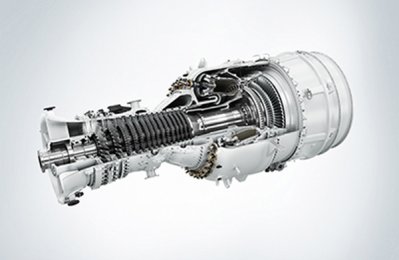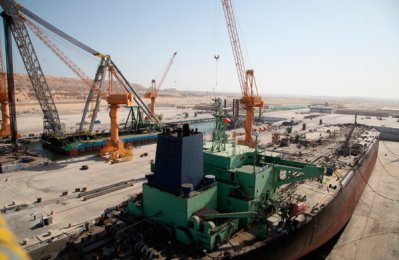Structured data key for maritime procurement efficiency: report
Industry-wide lack of structured, accurate and well-managed data is reducing the opportunity for maritime buyers to optimise procurement efficiencies and reduce costs, said a survey.
More Stories
Industry-wide lack of structured, accurate and well-managed data is reducing the opportunity for maritime buyers to optimise procurement efficiencies and reduce costs, as well as stifling their desire to increase spend under contract with suppliers, said a survey.
ShipServ, a leading maritime e-procurement platform, announced the results of a recent survey which provides critical insights on procurement trends.
ShipServ’s research was conducted with over 100 maritime buyers spanning shipowners (44 per cent), shipmanagers (39 per cent), ship yards (2 per cent), government and military (2 per cent) and other buyers (13 per cent). The research forms part of a report into the best practice and future opportunities of data optimisation within marine procurement, it said.
With the advancements of digitalisation, there has been a vast increase in data for all organisations within the global economy. Outside of the maritime industry, the new wave of analytical tools is enabling procurement departments to analyse their data in a meaningful way, combining insights from data and unstructured information to respond to customer and market demand more quickly and efficiently.
However, the adoption of strategic procurement models in the maritime industry is currently poor, compounded by a considerable lack of clean data to produce impactful reports, insights and intelligence, it added.
Supporting this trend, ShipServ’s research showed that 78 per cent of respondents would like to increase their spend under contract, but were prevented from doing so due to the complexity and unstructured nature of their data. 69 per cent of respondents stated that they would like to consolidate their spend with fewer suppliers, but in the majority of cases (60 per cent) were unable to report savings across all spend areas because of inadequate data and reporting tools.
Also, 72 per cent of respondents stated that they couldn’t monitor their procurement spend, which extended to the categories, brands, product types and suppliers that they were using. 72 per cent also emphasised the lack of transparency, in that they were unable to quickly identify where they were delivering orders, what equipment they had bought, or what brands and products each vessel or office had purchased.
This demonstrates that a key requirement for the maritime industry is the continued development of sophisticated software systems that support the trend of buyers wanting to consolidate and optimise their supplier base, moving more spend under contract, as well as embracing category management in order to take a more strategic approach to how procurement resources and processes are organised, concentrating on specific areas of spend.
Kim Skaarup, chief executive officer, ShipServ, said: “Given the transformational change that is happening right now in the shipping industry, there is a fundamental requirement to switch from a transactional model for procurement, which is sporadic and mostly done on intuition, to one that is strategic, and driven by data; a model that harnesses efficiencies, reduces spend, and delivers value beyond the basic price of a product.”
“To achieve this though, there needs to be a cultural shift and disruption of the status quo, which must be driven from the boards of organisations and cascaded down, and where there is genuine collaboration between procurement, and other departments,” he said.
Skaarup continued: “The current situation is a by-product of a global industry that has always been fragmented with no common standard. This isn’t just applicable to the shipowners, and managers, but also suppliers who have suffered from a lack of support for cloud hosted catalogue solutions that buyers can subscribe to and use industry standards for identifying units such as IMPA codes.”
“We are currently enhancing solutions in these areas. Software houses also need to further enhance their systems to embrace subscription to catalogues and additional fields for industry standards,” he added.
ShipServ’s report also stresses that while the maritime industry still has a long way to go in harnessing and cleaning data, even once that is done, the industry needs to embrace analytical tools and metrics that can deliver actionable intelligence and unlock the true value from that data.
From the perspective of procurement, this would provide buyers with the ability to identify purchasing patterns and trends, as well as how suppliers are performing against contracts in terms of efficiency, the quality of products and services, and agreed pricing structures. These can then be benchmarked against industry standards to determine true value for the cost.
In line with this, the ShipServ report specifically highlights that data organised by spend analytics tools are the catalyst for ‘elite performance’ in procurement, where savings of between 5 per cent and 20 per cent can be achieved by organisations that use these platforms, driving enhanced supplier performance, consolidated spend and increased competitive advantage.
By creating transparency and visibility of where, and on what buyers are spending, significant savings can be made, and supply chain performance can be enhanced. This includes optimising category management, where a range of products bought can be broken down into groups of similar, or related products. This allows companies to leverage business intelligence to support in-house expertise and improve the overall quality of service and products provided.
Skaarup said: “Like the wider maritime industry, marine procurement is also on the verge of radical transformation, where high quality, reliable data that provides clear insight into spending and supplier performance becomes the bedrock for informed, strategic decision-making and improved business performance.”
“While there are hurdles that need to be overcome to structure and harness data, those that embrace this change will reap the rewards by optimising procurement efficiencies and costs, creating more competitive businesses that are fit for purpose in a digitally transformed market,” he concluded.
ShipServ is currently developing a sophisticated Spend Analytics tool for its shipowner and shipmanager customers, which will be launched later in 2018, it stated. – TradeArabia News Service
Projects















